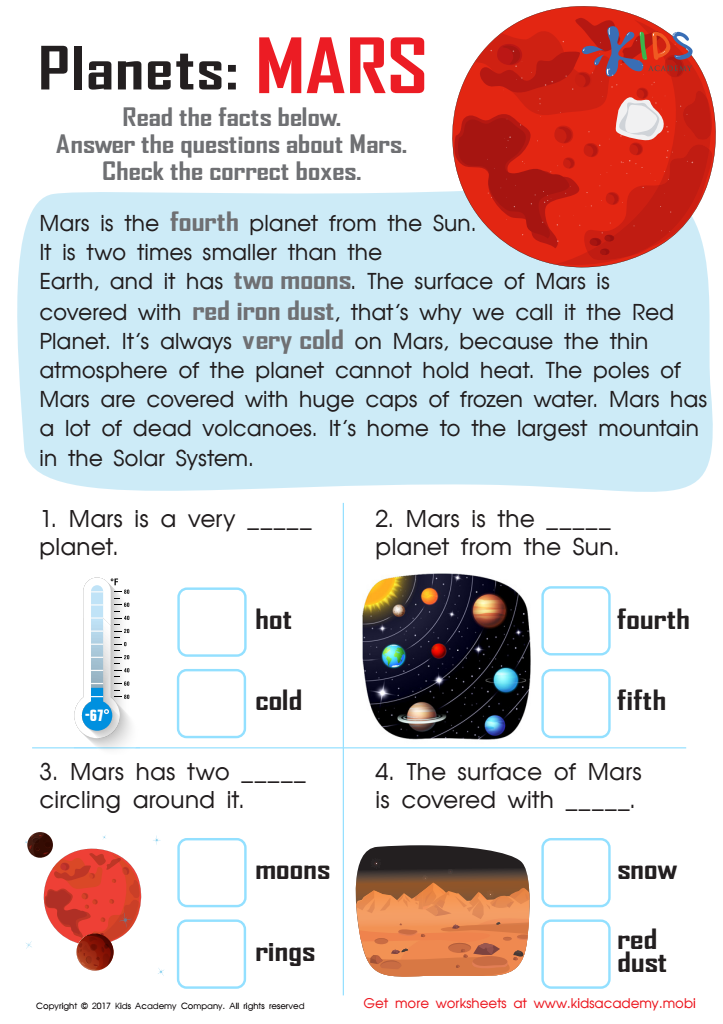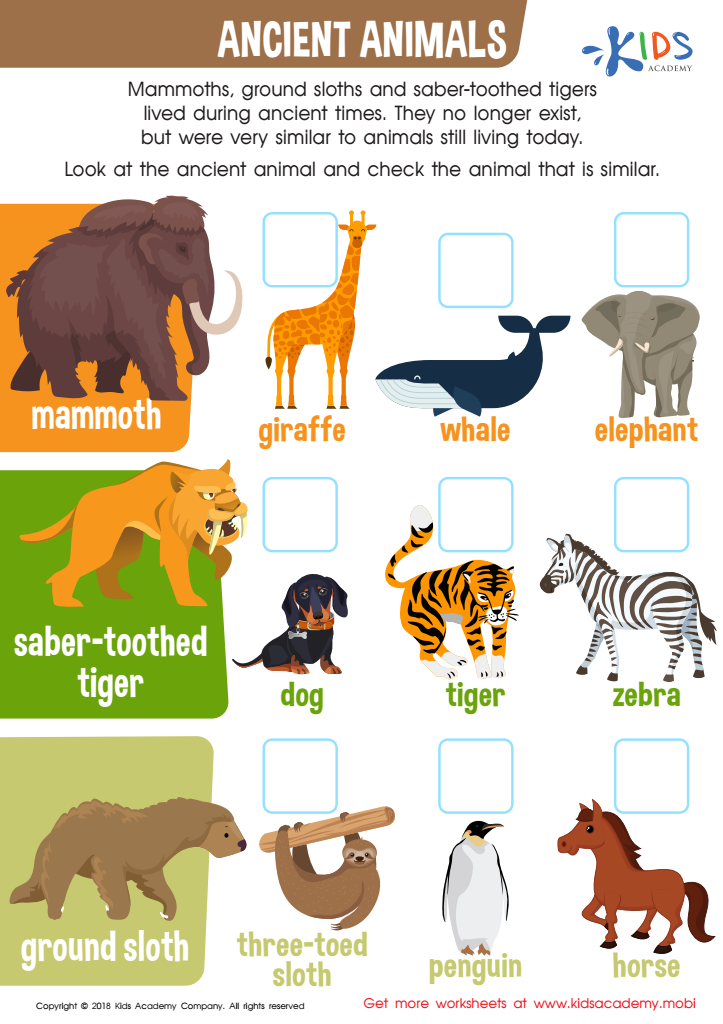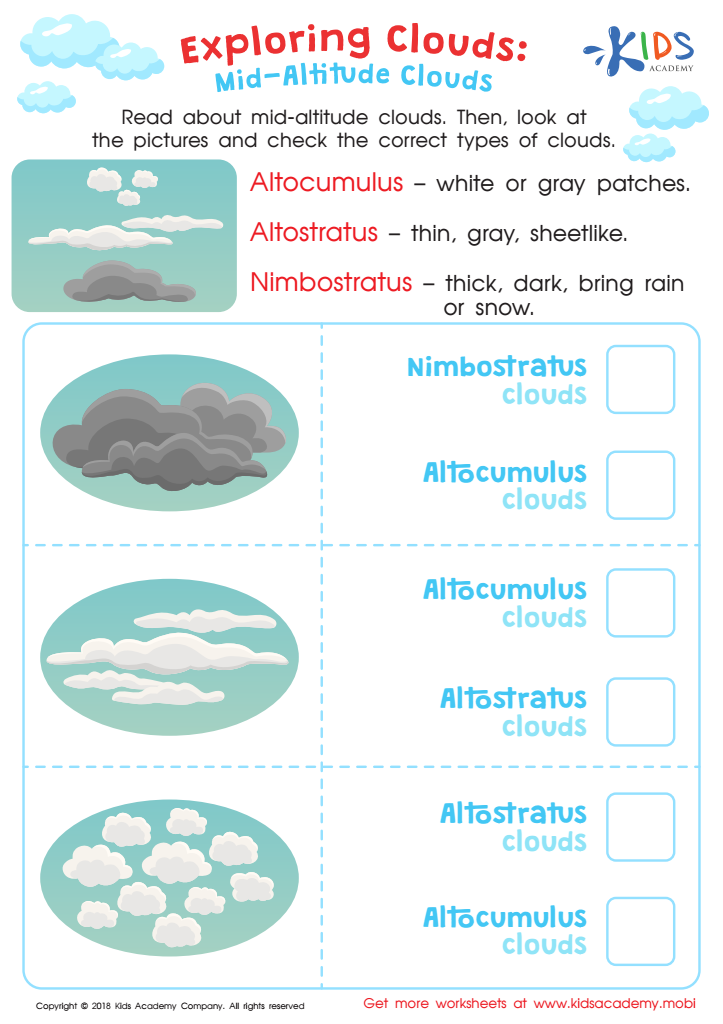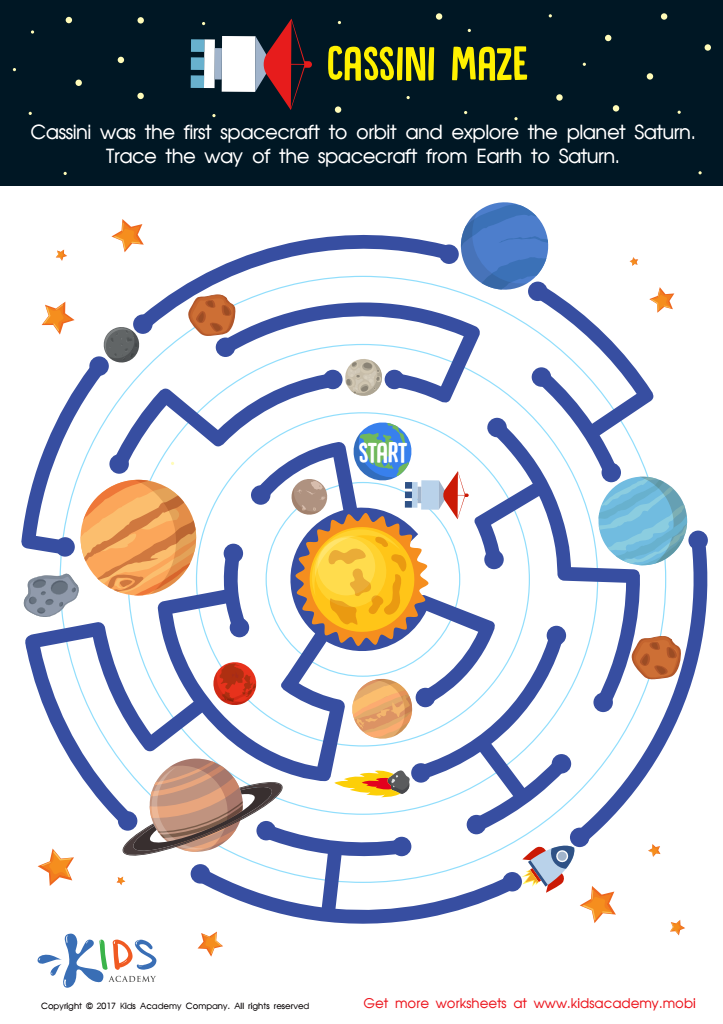Developing research skills Science Worksheets for Ages 3-9
4 filtered results
-
From - To
Explore our engaging "Developing Research Skills Science Worksheets" designed for young learners aged 3-9! These worksheets provide a fun and interactive way for children to enhance their research skills while diving into the wonders of science. Each activity is tailored to spark curiosity and promote critical thinking, encouraging children to ask questions, gather information, and present their findings. Through hands-on exercises, kids will learn to explore various scientific concepts in an enjoyable manner, making learning both informative and enjoyable. Perfect for classrooms or home education, our worksheets support early development of essential skills that lay a foundation for future learning success!


Mars Fact Printable Worksheet


Ancient Animals Worksheet


Exploring Clouds: Mid-altitude Clouds Worksheet


Cassini Printable Worksheet
Developing research skills in science for children aged 3-9 is essential for fostering curiosity and critical thinking. At this early stage, children are naturally inquisitive, eager to explore their surroundings, and ask questions. By nurturing these traits through structured research skills, parents and teachers can help children learn how to investigate, analyze, and interpret information, laying a strong foundation for lifelong learning.
Learning research skills in science encourages children to ask "why" and "how," promoting deeper understanding of the world. It teaches them how to observe carefully, gather data, and draw conclusions based on their findings. These skills are crucial for developing analytical thinking and problem-solving abilities, which are beneficial across all subjects and future endeavors.
Moreover, incorporating research in science fosters a collaborative spirit, as children often work together, share ideas, and respect diverse viewpoints. This not only enhances social skills but also makes learning enjoyable and engaging. As they practice these skills, students gain confidence in their abilities and learn the importance of evidence-based decision-making.
In summary, supporting the development of research skills in early childhood science not only stimulates a passion for discovery but also equips young learners with the techniques to succeed academically and in everyday life.
 Assign to My Students
Assign to My Students















